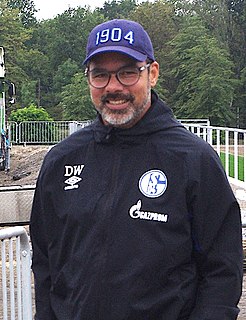A Quote by Molly Antopol
I knew that I was writing for an American audience and that if I sold foreign rights, they would retranslate the book to make it make sense to that language. But one thing that was really important to me was not to italicize any of the words in the languages that were in the stories, because I feel like those foreign words felt just as important and integral to the story as everything else, so I wanted it all to just exist as its own thing.
Related Quotes
The more foreign to me, to my existence, to your core existence, the more foreign the foreign language, it's really moving to me to think, to get to experience my own story crossing those boundaries. To have that experience that I so cherished as a reader. I can't believe this. To me, it's really nice because that would be a thing where I'm like, "There may be lots of Jews in my work. I'm not writing stories for Jews. I'm telling stories about people, and Jews are people, too."
Those of us who make films try to make something that we're feeling and that we would like. Then we just hope an audience responds the same way. It's very important to have the electrical circuit made, but I don't have control over how people feel when they flip the switch. So the whole idea of marketing research and test screenings is just foreign to me.
I knew what I wanted to do when I set out. I knew that I wanted to write a book that told the story, obviously. I wanted it be comedy first, because I felt like there already had been childhood druggy stories that were very serious, and I felt that the unique thing here was that I was a comic and I could tell the story with some levity, and I have been laughing at these stories my whole life.
At a young age, I really wanted to make music and make my own sort of thing. I'm sure if it wasn't music, it would have been writing, or it would have been maybe painting. I just always had the drive to try and make something with my hands and to just pull something out of myself and shape it and see it in front of me, if that makes any sense.
I'm still happy with the way Einstein's Dreams came out. That book came out of a single inspiration. I really felt like I was not creating the words, that I was hearing the words. That someone else was speaking the words to me and I was just writing them down. It was a very strange experience. That can happen with a short book. I don't think it could happen with a long book.
My generation those who were students in the late 60s was always, in the words of the Who, talking about our generation. That's what we thought of ourselves, as the most important thing since sliced bread. And the "we" that we meant was really the Western Europeans and American generation. And as I think back I suppose I have a sense of guilt on behalf of my generation, a sense that we were terribly provincial and didn't understand the really important stuff that was going on in Eastern Europe.
There are books full of great writing that don't have very good stories. Read sometimes for the story... don't be like the book-snobs who won't do that. Read sometimes for the words--the language. Don't be like the play-it-safers who won't do that. But when you find a book that has both a good story and good words, treasure that book.
You don't realize how language actually interferes with communication until you don't have it, how it gets in the way like an overdominant sense. You have to pay much more attention to everything else when you can't understand the words. Once comprehension comes, so much else falls away. You then rely on their words, and words aren't always the most reliable thing.
There is never just one path to success. For me personally, these are all just words anyway, because the much more important thing is that you can deliver the right performance on the pitch. The most important thing is that you find a way that suits your team, and that the players believe in that way.
I don't change the language for children books. I don't make the language simpler. I use words that they might have to look up in the dictionary. The books are shorter, but there's just not that much difference other than that to be honest. And the funny thing is, I have adult writer friends [to whom I would say], "Would you think of writing a children's book?" and they go, "No, God, I wouldn't know how." They're quite intimidated by the concept of it. And when I say to children's books writers, would they write an adult book, they say no because they think they're too good for it.
I think the most important thing is to feel comfortable. And if you don't feel comfortable with what you're wearing it really shows. Just make sure you find your own style rather than going with what everyone else is wearing. If you feel comfortable, it's going to get you noticed in the right way. That's better than worrying about what everyone else is wearing and feeling awkward. That's the most important thing.






































